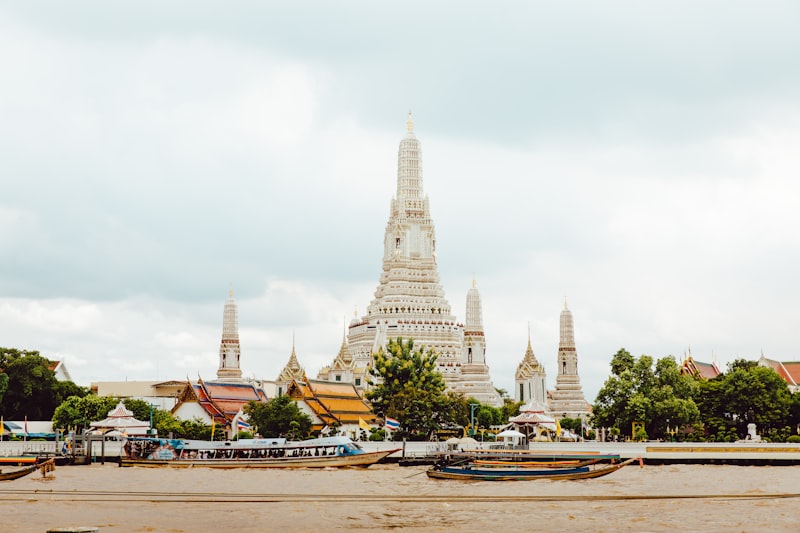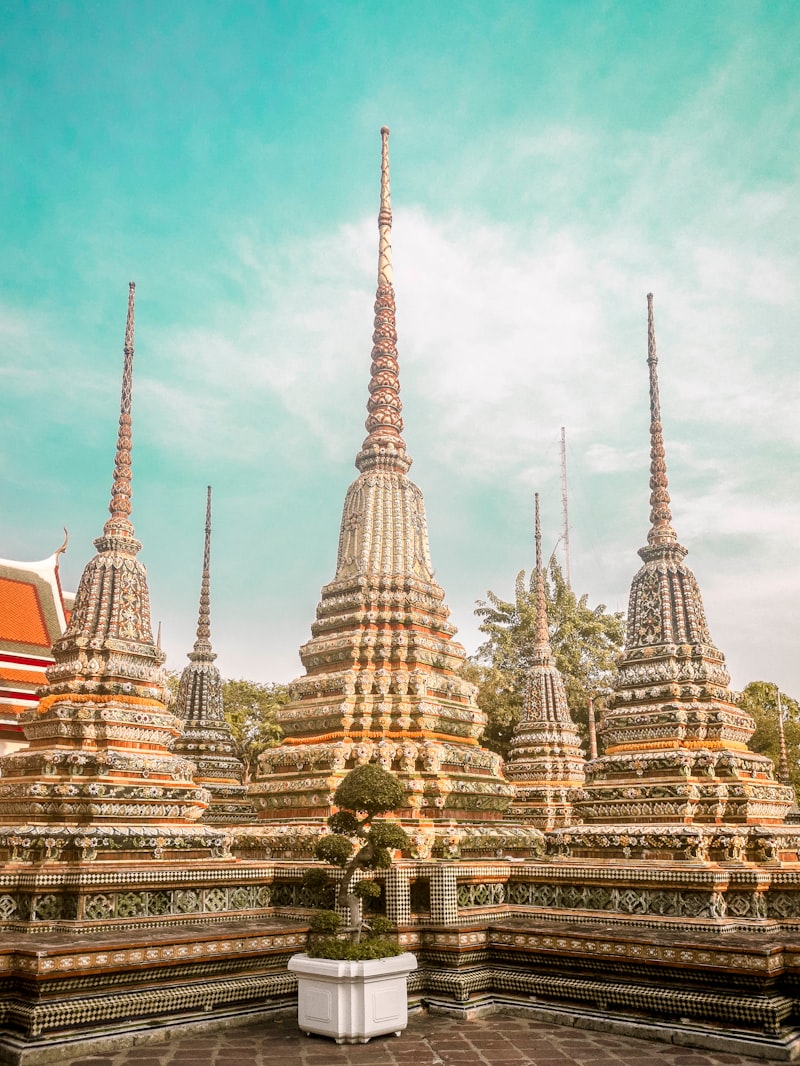Ever wondered how the hustle and bustle of Bangkok keeps ticking for a whopping 56 hours straight? Bangkok, Thailand’s vibrant capital, known for its bustling markets, lively nightlife, and vibrant culture, is a city that truly never sleeps. From the crack of dawn until late into the night, the city pulses with energy, offering an array of activities and experiences that cater to every taste and preference.
The concept of “Bangkok 56 Working Hours” encapsulates the city’s non-stop nature. Unlike many cities where the rhythm slows after sundown, Bangkok kicks into high gear. Streets that were packed with commuters during rush hour transform into vibrant hubs of activity, with food stalls sizzling and neon lights casting a colorful glow. Whether you’re a night owl seeking street food delights or an early riser eager to explore temples before the crowds, Bangkok accommodates every schedule with its around-the-clock offerings.
What makes Bangkok’s 56 working hours truly exceptional is its diversity. During the day, markets like Chatuchak buzz with locals and tourists alike, bargaining for souvenirs and fresh produce. As the sun sets, the city’s nightlife emerges, with rooftop bars offering stunning skyline views and clubs thumping with music until dawn. It’s a city where one can seamlessly transition from a serene morning at a Buddhist temple to a vibrant evening of shopping and dining without missing a beat.
Bangkok’s Work Culture Under Scrutiny: The Reality Behind the 56-Hour Workweek
Ever wondered what it’s truly like to work in Bangkok? The bustling city, known for its vibrant street life and rich cultural tapestry, hides a lesser-known facet: its demanding work culture. At the heart of this discussion is the contentious issue of the 56-hour workweek, a hot topic in recent years.
In the midst of Bangkok’s skyscrapers and neon-lit streets, professionals find themselves immersed in a work culture that blends dedication with long hours. The 56-hour workweek, although officially the standard, often extends beyond mere compliance. Many employees in competitive industries like finance, tech, and hospitality find themselves logging additional hours to stay ahead.
This phenomenon isn’t just about clocking in more time; it’s a reflection of Bangkok’s relentless pursuit of success. From high-rise offices overlooking the Chao Phraya River to vibrant coworking spaces in Sukhumvit, the city buzzes with ambition. The work ethic here is palpable, driven by a desire to excel in the dynamic Southeast Asian market.
However, behind the glittering facade of productivity lies a nuanced reality. The 56-hour workweek, while showcasing dedication, raises concerns about work-life balance. Families in Bangkok often feel the strain as loved ones navigate demanding schedules. This lifestyle prompts reflection on whether the pursuit of professional success should come at the cost of personal well-being.
Navigating Bangkok’s work culture requires resilience and adaptability. It’s about finding equilibrium amidst the city’s energy and the demands of career advancement. The 56-hour workweek serves as both a testament to industriousness and a prompt for introspection into what constitutes a fulfilling professional life.
Bangkok’s work culture embodies the spirit of dynamism and ambition, yet it challenges individuals to redefine success beyond the metrics of hours worked. As the city evolves, so too does the conversation around work-life harmony in one of Asia’s most exciting metropolises.
Balancing Act: How Bangkok Professionals Cope with 56-Hour Work Schedules
Living and working in Bangkok can feel like a whirlwind of activity, especially for professionals grappling with demanding 56-hour work schedules. The city, known for its vibrant street life and bustling markets, also harbors a workforce that navigates a delicate balancing act between career ambitions and personal well-being.
Imagine the typical workweek of a Bangkok professional: from Monday morning rush hours to late Friday evenings, the rhythm of their days is set to the beat of a bustling metropolis. Yet, amidst the chaos, there’s a remarkable strategy at play—a finely tuned dance of productivity and resilience.
At the heart of this balancing act is strategic time management. Every hour counts, and professionals in Bangkok have honed the art of prioritizing tasks with military precision. From early morning meetings fueled by strong Thai coffee to late-night brainstorming sessions over Pad Thai dinners, their days are meticulously planned to maximize efficiency.
But it’s not just about work. Bangkok professionals understand the importance of self-care amid their packed schedules. Whether it’s a quick meditation session during lunch breaks or a brisk walk along the Chao Phraya River after office hours, they carve out moments to recharge and rejuvenate.
Moreover, technology plays a pivotal role in their daily routines. Mobile apps keep them connected on the go, from managing deadlines to staying updated with industry trends. With smartphones as their digital Swiss Army knives, they seamlessly integrate work and life commitments.
In this high-stakes environment, resilience is key. Bangkok professionals exhibit a remarkable ability to bounce back from setbacks, viewing challenges as opportunities for growth. Like the city itself, they thrive amidst complexity, finding inspiration in its dynamic energy and cultural richness.
Ultimately, navigating a 56-hour workweek in Bangkok is akin to mastering a complex choreography. It requires agility, foresight, and a deep appreciation for the vibrant tapestry of urban life. As these professionals continue to innovate and adapt, they embody the spirit of a city where ambition meets opportunity at every turn.
Productivity or Burnout? The Debate Over Bangkok’s Extended Working Hours
In the bustling metropolis of Bangkok, a city known for its vibrant street life and towering skyscrapers, a heated debate simmers beneath the surface: productivity versus burnout. As businesses thrive and competition intensifies, the issue of extended working hours has become a focal point of discussion among professionals and policymakers alike.
Bangkok, often dubbed the “City of Angels,” operates at a relentless pace. From the vibrant markets of Chatuchak to the corporate boardrooms of Sukhumvit, the city never sleeps. This relentless energy fuels both economic growth and the relentless pursuit of success, but it also raises crucial questions about the toll on individuals.
On one hand, proponents of extended working hours argue that it enhances productivity and drives economic prosperity. They point to sectors like finance and technology, where long hours are synonymous with dedication and ambition. In a city where opportunities abound, working late into the night can be seen as a badge of honor—a testament to one’s commitment to success.

However, this culture of overwork comes at a cost. The flip side of extended hours is the looming specter of burnout. As professionals push themselves to the limit, stress levels soar, and work-life balance becomes a distant dream. The vibrant streets of Bangkok can quickly transform into a battleground of fatigue and mental exhaustion.
Imagine a young entrepreneur in Bangkok’s vibrant startup scene, burning the midnight oil to meet deadlines and outpace competitors. The adrenaline rush of success is addictive, but it’s accompanied by sleepless nights and neglected personal relationships. The constant pressure to perform takes its toll, leading to decreased productivity and increased risk of burnout.
As the debate rages on, Bangkok finds itself at a crossroads. How can the city harness the energy of its workforce without sacrificing their well-being? Can productivity thrive without pushing individuals to the brink of exhaustion? These questions are more than theoretical—they shape the future of work in one of Asia’s most dynamic cities.
Inside Bangkok’s Office Culture: Tales from the 56-Hour Workweek
Have you ever wondered what it’s like inside Bangkok’s buzzing office culture, where the 56-hour workweek is the norm? Picture this: a city pulsating with energy, where skyscrapers reach for the sky like giant monoliths, each housing a myriad of offices bustling with life. This isn’t just about work; it’s a lifestyle, a rhythm that defines the heartbeat of Thailand’s capital.
In Bangkok, the workweek isn’t just a series of days—it’s a narrative of dedication and ambition. From Monday morning meetings to late Friday wrap-ups, every hour counts. It’s a culture where time management isn’t a skill but a way of life, where deadlines are as tight as the traffic on Sukhumvit Road during rush hour.
What fuels this relentless work ethic? It’s a blend of tradition and modernity, where respect for hierarchy meets the drive for innovation. Thai offices are often hierarchical, with a deep-rooted respect for seniority and authority. Yet, amidst this structure, there’s a dynamism that’s distinctly Bangkok—a readiness to embrace new ideas, to adapt swiftly in a fast-paced global economy.

But it’s not all about work in the concrete jungle of Bangkok. Amidst the high-rise offices, there’s a camaraderie that emerges during lunch breaks at local street vendors or over post-work drinks at trendy rooftop bars. Relationships are nurtured not just through emails but also through shared meals of spicy som tam and aromatic tom yum soup.
The 56-hour workweek isn’t just a number; it’s a testament to the dedication of Bangkok’s workforce. It’s about the countless stories of perseverance and triumph, of challenges faced and victories celebrated. It’s about the unsung heroes behind every successful project, the late-night brainstorming sessions that lead to breakthrough innovations.
In this city where tradition meets innovation, where the old collides with the new, the 56-hour workweek isn’t a burden but a badge of honor. It’s a reflection of Bangkok’s unstoppable spirit, where each hour worked is a step forward in the journey towards success.